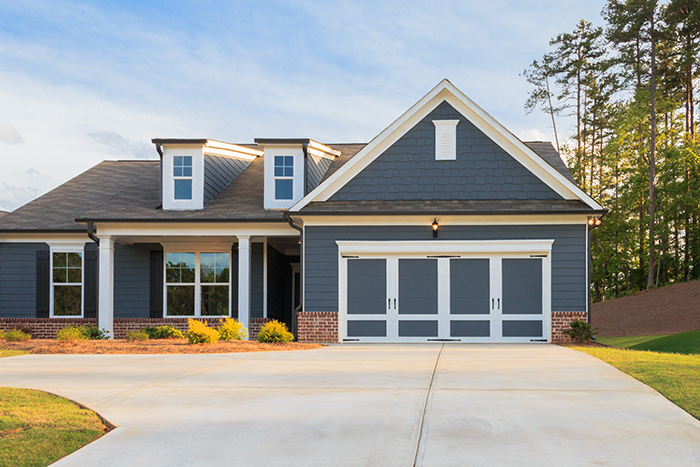2024 Mid-year review of the Quebec real estate market
According to economists at the Quebec Professional Association of Real Estate Brokers (QPAREB), the first half of 2024 closed with the Quebec real estate market showing signs of recovery. The second quarter was marked by a new momentum fuelled by renewed buyer confidence and favourable residential market conditions.

In this mid-year market review – also discussed in episode 26 of the Real Estate in Motion podcast –, economists answer your questions and discuss the highlights and emerging trends. They also present their outlook for the second half of the year. Whether you’re considering selling or buying a property, this review provides the information you need to navigate today’s real estate market.
What were the real estate market trends in the first half of the year?
“The resale real estate market posted a solid rebound in the first months of 2024,” explains Charles Brant, QPAREB Market Analysis Director.
Slowing inflation, growing expectations of an imminent interest rate cut, and fear of an overheated market prompted many buyers to take action sooner rather than later. By trying to avoid the risk of an even more competitive market, these buyers created a favourable market dynamic.
The second quarter was marked by significant changes that could well influence market trends for the rest of the year.
Are residential sales still up?
Residential sales continued to grow in the 2024 second quarter and jumped by 12 per cent compared to the same period in 2023. The real estate market closed the previous year trending towards more balanced conditions. However, this recovery is indicative of a growing demand for properties in a number of the province’s census metropolitan areas (CMAs).
Property sales posted significant gains in these transactional markets.
|
|
|
|
CMA |
2Q 2024 |
|
Drummondville |
+19 per cent |
|
Sherbrooke |
+13 per cent |
|
Gatineau |
+11 per cent |
|
Montreal |
+11 per cent |
These increases are higher than the historical average, demonstrating that these regions, including the Greater Montreal Area, have become even more attractive to buyers. This exceptional transactional activity has prompted QPAREB economists to revise their forecast. Chantal Routhier, QPAREB Assistant Director, Data Analysis and Management, explains: “We revised the transactional forecast for the province upward to almost 81,000 sales. This is a 6 per cent increase, or 5,800 transactions, compared to 2023.”
Transactional activity in these CMAs in the 2024 second quarter exceeds the respective historical averages calculated since 2000 for this period of the year. For instance, Drummondville saw its highest second quarter since 2000, clearly showing the vitality of its real estate market.
Did property prices rise in the second quarter?
In most regions of Quebec, sales and prices both increased significantly.
|
|
|
|
Property type |
2Q 2024 |
|
Single-family homes |
+11 per cent |
|
Condominiums |
+10 per cent |
|
Plexes |
+21 per cent |
According to Charles Brant, the financial situation of Quebec households is one factor contributing to this increase which is not necessarily the case elsewhere in the country. He points out that “in recent years, household income has caught up with that of other Canadian provinces, inevitably contributing to the rise in prices in Quebec.”
These increases, like the rise in the average rent of Montreal apartments in 2024, show that demand is strong while the supply remains limited. The median price of single family homes rose by 5 per cent to reach $452,500. This increase is in line with the historical average and indicates stability in this segment of the Quebec real estate market.
What are the main challenges facing buyers?
Due to the sustained limited growth in listings, market conditions remain favourable to sellers. Consequently, buyers must deal with high prices and limited real estate inventory, particularly in Montreal and Quebec City. Interest rates remain generally high despite the cuts in June and July. The high rate of borrowing could therefore deter some potential buyers, thus slowing down activity in the entire real estate market.
Is this a good time to buy a second home?
In addition to the fact that some buyers have brought forward their projects out of concern that the market will again heat up and prices spiral upward, various other factors have influenced the real estate market. This is particularly the case for repeat buyers who are already well established in the market. “The needs of these repeat buyers are changing and may be shifting towards the purchase of high-end condominiums, second homes, or pied-à-terres in the city for those who choose to live in the countryside,” explains Charles Brant.
Recreational regions such as Estrie, Laurentides and Lanaudière have seen an increase in inventory, offering more choice to those looking to buy or rent a home in the country. Some areas have also seen a notable increase in transactions, particularly in recreational or leisure markets.
|
|
|
|
Region |
2Q 2024 |
|
Lachute |
+19 per cent |
|
Rawdon |
+13 per cent |
|
Sainte-Agathe-des-Monts |
+11 per cent |
Why are plexes so popular?
There are many benefits to owning a plex, whether you occupy it or not. This type of housing is particularly attractive to first-time buyers and investors, particularly due to the rental income it can generate.
During the second quarter of 2024, plexes continued to gain popularity with a 21 per cent increase in sales. The median price of plexes also rose by 10 per cent to reach $603,500.
According to economists, how is the Canadian mid-year real estate market doing?
The 2024 mid-year real estate review shows a clear improvement compared to the same period last year. Unlike other comparable Canadian provinces, namely Ontario and British Columbia, Quebec has experienced increasing transactional activity.
Is the real estate forecast being revised up or down?
Economists at the Canadian Real Estate Association have recently revised their 2024 growth forecast downwards, from 10.5 per cent to 6.1 per cent. This is due to an increase in supply and a calmer spring than expected marked by fewer interest rate cuts than anticipated.
Is the Quebec real estate market in recovery?
Although the market is relatively calm, it did show some resilience with home sales increasing by 3.7 per cent between May and June. However, the average home price declined slightly by 1.6 per cent compared to June 2023. Although spring activity was less intense than expected, it still led to an increase in the number of properties available on the market.
What about current interest rates in Canada?
The Bank of Canada recently lowered its key interest rate, which has created new opportunities for buyers in the market. However, Charles Brant points out that many households still cannot enter the Quebec real estate market. “This is due to an erosion of purchasing power by inflation and prices which again have started to rise in a context where interest rates remain relatively high. The market will therefore have to see more balanced conditions before the door opens to a greater number of prospective buyers”.
Nevertheless, if inflation continues to follow the Bank of Canada’s trajectory, economists project that interest rates will fall to 4 per cent by the end of the year.
Can we be optimistic about the Quebec real estate market?
In summary, despite the fluctuations and challenges encountered during the year, economists are optimistic and believe that the Quebec real estate market is showing encouraging signs for the future. This recovery period of the real estate market has created manynew property opportunities for both buyers and sellers.
For more information about real estate market trends, consult the latest detailed monthly statistics presented by QPAREB economists.
Article written in collaboration with:


See also:
13 expenses to budget for when buying a home
 The Largest Number of Homes for Sale
The Largest Number of Homes for Sale



